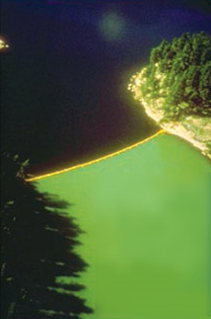Human activities overloading ecosystems with nitrogen
Humans are overloading ecosystems with nitrogen through the burning of fossil fuels and an increase in nitrogen-producing industrial and agricultural activities, according to a new study. While nitrogen is an element that is essential to life, it is an environmental scourge at high levels. According to the study, excess nitrogen that is contributed by human activities pollutes fresh waters and coastal zones, and may contribute to climate change. Nevertheless, such ecological damage could be reduced by the adoption of time-honored sustainable practices. Appearing in the October 8, 2010 edition of Science and conducted by an international team of researchers, the study was partially funded by the National Science Foundation. … By the start of the 20th century, human contributions to the nitrogen cycle began skyrocketing. “In fact, no phenomenon has probably impacted the nitrogen cycle more than human inputs of nitrogen into the cycle in the last 2.5 billion years,” says Paul Falkowski of Rutgers University, a member of the research team. “Altogether, human activities currently contribute twice as much terrestrial nitrogen fixation as natural sources, and provide around 45 percent of the total biological useful nitrogen produced annually on Earth,” says Falkowski. Much of the human contributions of nitrogen into ecosystems come from an 800 percent increase in the use of nitrogen fertilizers from 1960 to 2000. Another problem: Much of nitrogen fertilizer that is used worldwide is applied inefficiently. As a result, about 60 percent of the nitrogen contained in applied fertilizer is never incorporated into plants and so is free to wash out of root zones, and then pollute rivers, lakes, aquifers and coastal areas through eutrophication. (Eutrophication is a process caused by excess nutrients that depletes oxygen in water bodies and ultimately leads to the death of animal life.) In addition, some reactions involving nitrogen release nitrogen oxide into the atmosphere. Nitrogen oxide is a greenhouse gas that has 300 times (per molecule) the warming potential of carbon dioxide. In addition, nitrogen oxide destroys stratospheric ozone, which protects the earth from harmful ultraviolet (UV-B) radiation. …
